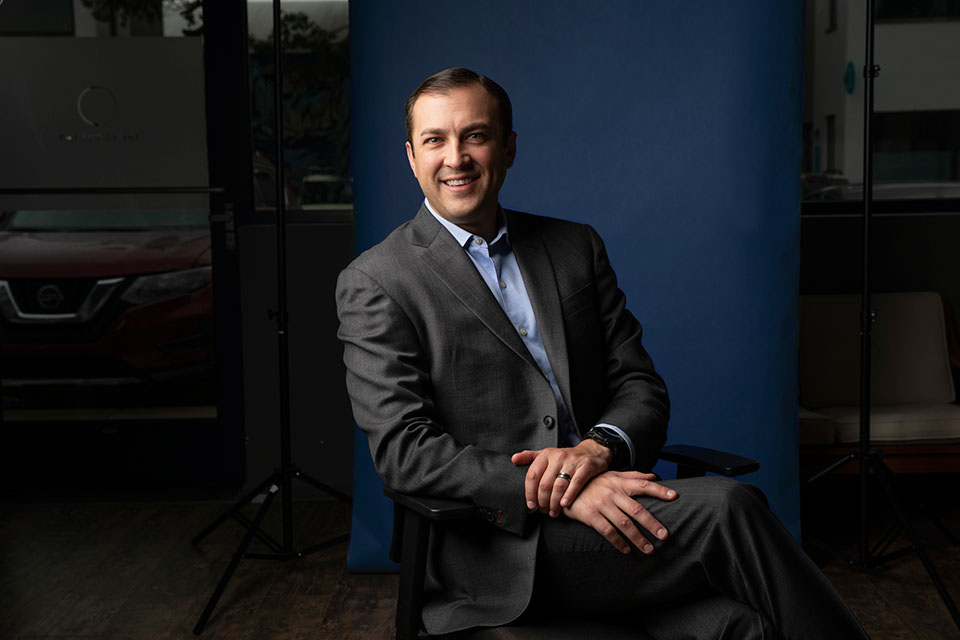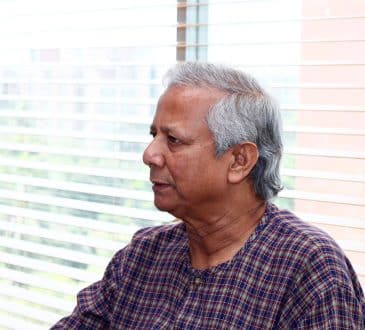Remote Control Leadership: Effective executives and the power of presence

Taking classes online and earning degrees without ever stepping foot on an actual college campus is nothing new. Even before the COVID crisis swept across the globe, it was clearly possible to be productive and to accomplish a growing range of tasks without any in-person interactions.
The pandemic took things to the next level, however, as businesses and individuals leveraged new tech tools to devise creative ways to stay connected and productive—even while physically separated. Consequently, we can do more virtually and accomplish more remotely than most of us would have ever dreamed possible even a few short years ago.
But at what cost?
What is the cost to translate workplace collaboration and connectivity to a virtual format? While pandemic necessity has been the mother of invention for so many, there are real questions about what has been lost in the transformation process. Perhaps most urgently are the questions about what comes next. What are the advantages and disadvantages to executives leading remotely? How can leaders strike a balance? Should leaders get back to the office now? What should business leaders and decision-makers understand about how to provide compelling and effective leadership—not just in the weeks and months ahead, but in the changed landscape of a post-COVID world?
Culture and consequence
The noteworthy early success of the vaccine rollout prompted many companies that had gone to a remote or hybrid work model to begin plans to return to the workplace. More than a few returned to something close to pre-pandemic operations.
Others, however, saw the somewhat surprising success of a remote workforce as justification for a more permanent operational shift. Some organizations have made the decision to permit employees to work virtually on a permanent basis, and others have embraced a hybrid model, with a blend of on-site and remote team members.
But not every company has the infrastructure, resources and support to sustain a remote work environment, and few are fully equipped to recognize and reckon with the inevitable and potentially significant implications for workplace culture. Organizational culture can be cultivated, but it is ultimately an organic phenomenon, woven over time with threads spun from the social fabric of teams and individuals. It is difficult, if not impossible, to replicate the in-person interactions, impromptu mentorship moments, and daily professional and social interactions that build and strengthen relationships. Human beings are social creatures, evolved to thrive in the company of others, and in-person engagement is enormously important in bonding us—not just to our institutions, but to each other.
The hidden cost of remote work is the gradual erosion of those cultural connections. Employees who are inclined to prefer working in-person can find those costs particularly punitive, resulting in up to 17% lower productivity and 24% higher turnover.
The good news, however, is that the right kind of executive leadership can make a meaningful difference in minimizing those negative consequences. What does that leadership look like?
Leadership redefined
While the best bosses have always prioritized the well-being of their teams, effective leadership during the age of COVID demanded higher-than-usual levels of empathy and understanding. With personal and professional pressures at an all-time high, rigidity and fire-and-brimstone demands were not as effective as flexibility and understanding. Leadership in that environment also requires extraordinary amounts of organization, and a dedicated commitment to consistency and communication.
In today’s COVID-altered professional environment, executives with high emotional intelligence are rare and valuable assets. A distributed workforce can quickly become a disconnected workforce without dependable, empathic leaders who know how to listen—and who have the capacity to connect with team members on a level that extends well beyond traditional metrics for productivity and performance.
With the proliferation of remote and hybrid work models, we are prioritizing different traits in our business leaders. We are asking executives to bring a new or expanded set of leadership attributes to the table: to balance the power of personality with objective humility, empathy and transparency. But how realistic are those expectations if the table in question is virtual? The question then becomes: will the best post-COVID leaders have to be physically present themselves to provide the kind of supportive and engaged leadership that this new world requires? Perhaps unsurprisingly, the answer is a resounding yes.
Being there
Today, with brands and businesses adapting to new workplace realities, C-Suite executives are still navigating the best way to adapt their operations for what many see as a permanent (or at least semi-permanent) shift towards a hybrid remote operational model. From hiring to day-to-day realities, in-person leadership is emerging a critical piece of that puzzle. Forbes Insight reports that 85% of people say in-person meetings and conferences enable them to forge stronger, more meaningful business relationships than with virtual engagement.
For executives, who play such an important role in the trajectory of a company, that dynamic is even more evident—and the impact of in-person engagement is even more dramatic and consequential. Which is why a successful distributed workforce doesn’t just require stable executive leaders with a high emotional intelligence: it requires leaders who can be physically present. For all of the creative new ways companies are finding to motivate and monitor remote or hybrid employees, the most effective leaders are those who are present in the workplace as much as possible. Even the most conscientious and connected leader recognizes that listening, understanding and connecting to individual team members is exponentially more powerful in person.
Aiming hire
That same in-person advantage applies to executive hiring, as well. While innovative virtual platforms and new digital technologies have certainly been critical in identifying candidates and expediting executive search and hiring processes over the last year and a half, the overwhelming majority of promising candidates were either encouraged or required to meet decision makers face to face (within pandemic health and safety parameters). Like any important relationship (in or out of the workplace), making a significant commitment to someone you have only interacted with virtually is fraught with risk—for all parties.
To optimize chances for success, the executive search process should prioritize chemistry, as well as capabilities. Prospective leadership candidates should demonstrate in-person that they have the right combination of character, commitment and cultural connection to meet the challenges of this unique moment.
Remotely appealing
Frustratingly for many companies, the explosion of remote and hybrid work models has ramped up the competition between middle-market companies and larger national organizations. Greater transparency regarding compensation has fueled an environment where executives who prefer remote-work models are able to chase the biggest dollars and the best benefits packages. Larger companies with the technology and the financial and institutional resources to meet the demands of this new landscape will find themselves with a significant competitive advantage when it comes to attracting top talent. Ironically, that short-term advantage could evolve into a long-term liability, as the push to concede to more virtual preferences could be corrosive over time.
The solution, for smaller and middle-market companies that want to offer flexibility while simultaneously realizing the benefits of more consistent in-person executive leadership, is to attract talent by leveraging non-economic values, strong company culture, or built-in geographic advantages. A hybrid work structure may be the ideal compromise, providing executives with the flexibility, socialization and purpose they need to feel fulfilled, and allowing companies to access a deeper pool of talent without sacrificing the in-person leadership benefits they value. And, at a time when so many brands and businesses have had to make compromises and sacrifices, the best of both worlds feels like an awfully appealing place to be.
Written by Dan Ellis, Managing Director at Townsend Search Group.
Bring the best of the CEOWORLD magazine's global journalism to audiences in the United States and around the world. - Add CEOWORLD magazine to your Google News feed.
Follow CEOWORLD magazine headlines on: Google News, LinkedIn, Twitter, and Facebook.
Copyright 2025 The CEOWORLD magazine. All rights reserved. This material (and any extract from it) must not be copied, redistributed or placed on any website, without CEOWORLD magazine' prior written consent. For media queries, please contact: info@ceoworld.biz











